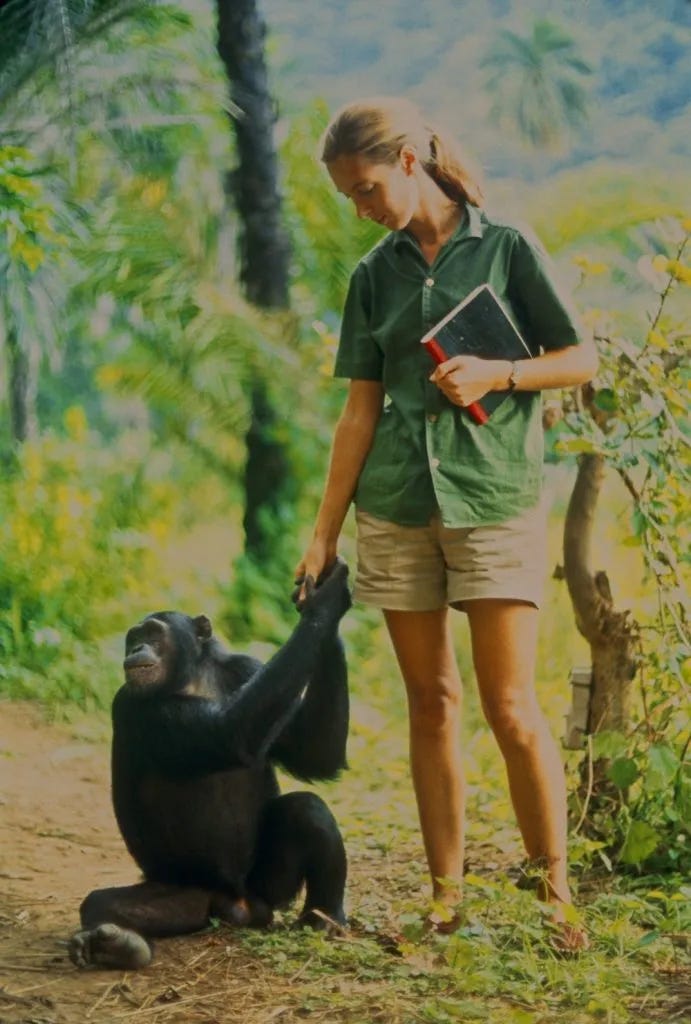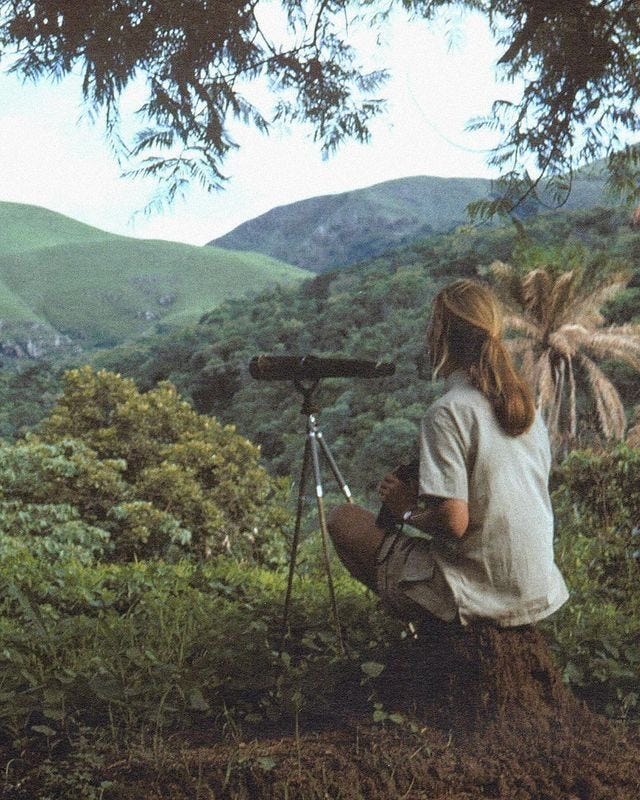“What I’ve learned from the chimpanzees, is not what just makes us similar but also what makes us different. And to me the key difference is the explosive development of our intellect. I’m going to talk about that rocket that went up to Mars, the planet that we once thought that maybe had some kind of life. You look at those photos taken by the robots, I’m sure you have — you don’t want to go and live there, do you? So here we are, the most intellectual species to ever walk the planet, and yet we’re destroying our only home. How come? Is it because there’s a disconnect between this clever brain and the human heart, which is love and compassion?”
— Dr. Jane Goodall, 2018
Dr. Jane Goodall walked into the forests of Tanzania with a notebook and a pair of binoculars and studied chimpanzees — and what she discovered there would change science, ethics, and the way humans understand themselves.
Here are 5 things we would not have today if it weren’t for her:
The knowledge that chimpanzees use tools. By showing that chimpanzees shape and use tools, she shattered the idea that intellect belonged to us humans alone and made us realize, for the first time ever, that we share deep evolutionary and emotional connections with other species.
An understanding of the emotional depth of animals. She showed that chimpanzees feel joy, grief, and affection — that they mourn their dead and comfort their young. People saw animals as sentient beings, research subjects, and resources. After she published her revolutionary studies, it pushed changes in zoo design, laws, and ethics about animal testing and captivity.
A lifetime of research that redefined how we study life. Her long, patient work in Tanzania became one of the most important studies of the natural world, and taught scientists to slow down, watch, listen, and care. Her approach also opened doors for more women in science and inspired a generation of researchers to connect personally with their subjects — something previously largely undone.
Science rooted in empathy. Before her, most animal researchers avoided emotional language and treated animals as detached subjects. By writing about chimpanzees as individuals with personalities, emotions, and family bonds, she changed that completely and made people care — not just as scientists, but as fellow living beings. That shift — from “studying animals” to understanding and protecting them — helped lay the moral groundwork for today’s conservation movement. She showed that compassion and curiosity can live side by side, and were in fact the most important elements of human intelligence. Can you imagine scientists doing their work today without compassion and empathy? Her way of seeing the world helped shift science from this sort of hardcore pragmatism-first approach to a more understanding one.
She connected conservation to communities. In the 1980s, she saw that chimpanzees were losing their forests because the local people living around Gombe were struggling for resources. Instead of blaming them, she started programs that addressed human needs and conservation together — things like sustainable farming, education, and healthcare. This approach, known as community-centered conservation, was revolutionary at the time. Today, it’s a core model for wildlife protection worldwide.
Humanity’s truest strength and intelligence come from understanding and learning from nature, not simply taking from it.
We should also remember that Jane Goodall was both a scientist and an advocate — someone who dedicated her life to delivering an extraordinary message. If you read between the lines, you can imagine the endurance and perseverance it must have taken to convince scientists to see emotion in animals, and the public to see kinship instead of difference. She encouraged people everywhere to act with respect and responsibility toward the planet and all living beings. Her message — that humans are part of nature, not separate from it — has become one of the core ideas behind modern environmentalism.
Cheers to a life led with impact, integrity, and meaning — and to a woman who changed the world.
Here’s some more reading you can do:
Jane Goodall, the gentle disrupter whose research on chimpanzees redefined what it meant to be human (The Conversation, 2025)
Jane Goodall: Championing animal conservation for six decades (National Geographic, 2021)
Jane Goodall original stories that still astonishes (National Geographic, 2021)
In the Shadow of Man (1971) — the book that introduced the world to her work at Gombe.






Cool! Would love if you took a read of my most recent piece
Thank you for this lovely piece honouring a beautiful brilliant lady. ❤️